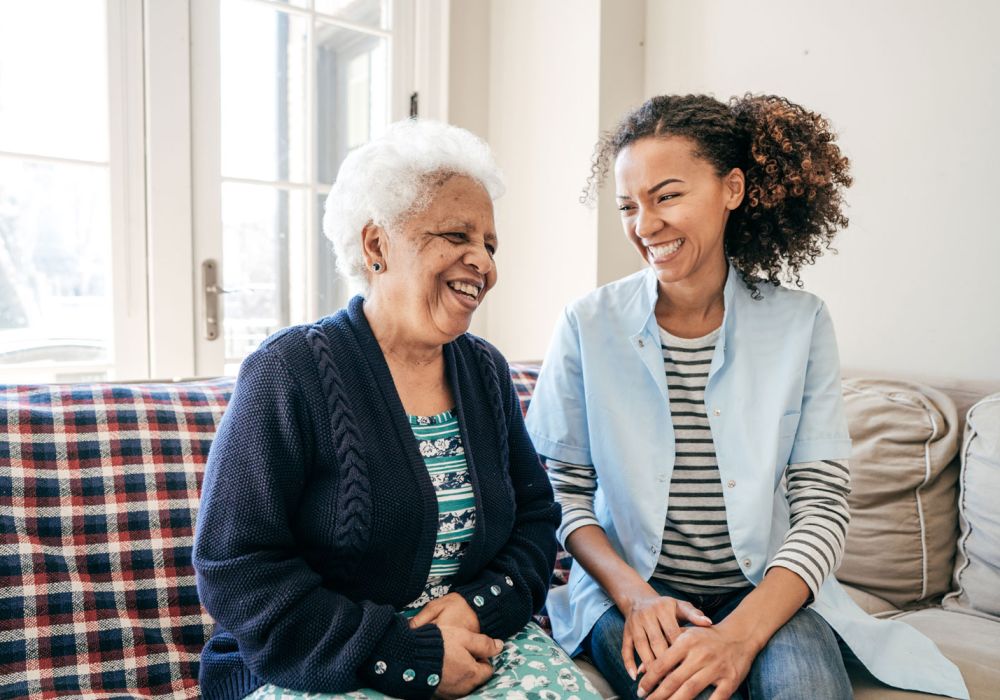What You Should Know When Discussing Assisted Living With Your Elderly Loved One

With the aging population increasing, the topic of assisted living has become more prevalent in family discussions. Bringing up the idea of assisted living with an elderly loved one can be a sensitive and challenging conversation. To help navigate this important discussion, it is crucial to approach it with compassion, empathy, and understanding. In this blog post, we will explore the dos and don'ts of discussing assisted living with your elderly loved one to ensure a respectful and productive conversation.
Understanding Assisted Living
Defining Assisted Living
For many families, the term "assisted living" can be confusing. Assisted living facilities are residential communities that provide support for elderly individuals who need help with activities of daily living, such as medication management, bathing, and meal preparation. These communities offer a balance between independent living and round-the-clock care.
Benefits of Assisted Living for Elderly Individuals
Any discussion about assisted living with your elderly loved one should include a focus on the numerous benefits it can offer. Assisted living provides a safe and comfortable environment where seniors can receive personalized care, socialize with peers, and participate in various activities that promote physical and mental well-being. Additionally, residents have access to on-site medical care and assistance whenever needed, giving both them and their families peace of mind.
This informative chapter aims to enlighten readers about the concept of assisted living and its benefits for elderly individuals. By understanding the definition of assisted living and the advantages it offers, families can make informed decisions when considering this option for their loved ones.
Preparing for The Conversation

Educating Yourself About Assisted Living Options
Even before broaching the topic with your elderly loved one, it is crucial to educate yourself about the various assisted living options available. This will not only help you address any concerns or questions they may have, but also enable you to make informed decisions together.
Choosing the Right Time and Setting
An vital aspect of discussing assisted living with your elderly loved one is choosing the right time and setting for the conversation. It is important to pick a time when both of you are relaxed and can have a private discussion without any distractions.
Options may include a quiet afternoon at home or a peaceful outdoor setting where you both feel comfortable. Ensuring a calm and peaceful environment will help facilitate the conversation and allow for open communication.
Approaching the Topic with Sensitivity
Addressing Concerns and Emotions
An vital aspect of discussing assisted living with your elderly loved one is addressing their concerns and emotions. Understand that this transition may bring up feelings of fear, loss of independence, and uncertainty. It's crucial to approach these emotions with empathy and patience.
Listening and Providing Reassurance
Listening to your loved one's worries and fears is key to guiding them through this discussion. Provide reassurance by acknowledging their feelings and emphasizing that their well-being is the top priority. Assure them that you will be there every step of the way to support and help them adjust to this new chapter.
Providing a sense of security and stability can help ease their anxieties about the move. Reiterate that their input and preferences are valued in the decision-making process. By listening actively and offering reassurance, you can foster a sense of trust and comfort in your loved one.
Discussing Practical Matters
Not all discussions about assisted living with your elderly loved one need to be emotional. It's important to address practical matters in a calm and collected manner to ensure a smooth transition.

Financial Considerations
One of the key aspects to discuss when considering assisted living is the financial implications. Sit down with your loved one to review their financial situation, including savings, income, and expenses. This will help you both understand what is affordable and what kind of financial assistance may be necessary.
Planning the Transition Together
Financial planning is crucial when preparing for the transition to assisted living. It's important to have a clear understanding of the costs involved, including monthly fees, additional services, and potential increases in the future. With careful planning and transparency about finances, you can ensure a smooth transition that meets both your loved one's needs and their financial capabilities.
Navigating Resistance and Denial
Strategies for Overcoming Objections
To navigate resistance and denial when discussing assisted living with your elderly loved one, it's important to approach the conversation with empathy and understanding. Acknowledge their feelings and concerns while gently discussing the benefits of assisted living, such as safety, socialization, and professional care. Encourage open communication and involve them in the decision-making process to address their objections with compassion and respect.
Seeking Professional Advice and Support
The decision to transition a loved one to assisted living can be emotionally challenging for both parties. Seeking professional advice from geriatric care managers, social workers, or therapists can provide valuable insights and support during this difficult time. These professionals can offer guidance on communication strategies, care options, and emotional support to help you and your loved one navigate this transition with clarity and compassion.
Plus, connecting with support groups or online communities can provide emotional support and shared experiences with others going through similar challenges. Be mindful of, you don't have to navigate this journey alone - seeking professional advice and support can make the process smoother and help ensure the best possible care for your elderly loved one.
In Conclusion
So, when discussing assisted living with your elderly loved one, it is important to approach the conversation with empathy, respect, and understanding. Do listen to their concerns, involve them in the decision-making process, and provide them with reassurance and support. Don't dismiss their feelings or force them into a decision. By following these dos and don'ts, you can have a productive and positive discussion about assisted living that prioritizes your loved one's well-being and autonomy.